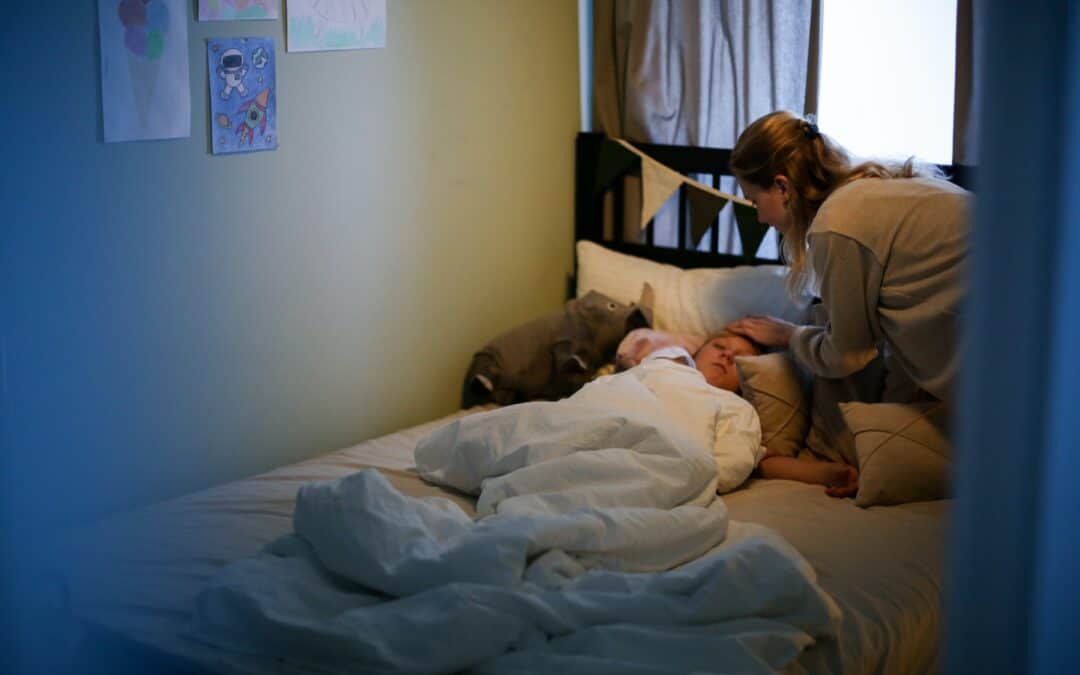There’s often a spike in illnesses when kids go back to school for a new year. Parents should be well-informed about when it’s best to keep their sick child at home.It’s not just about making sure they recover, but also about protecting other kids and adults from catching contagious illnesses. But with so many different types of illnesses out there, it can be tough to know where to draw the line. In this guide, we’ll go over some of the most common contagious illnesses that may require a child to stay home, as well as what to do if your child does get sick.
Common Contagious Illnesses
There are several illnesses that are commonly spread in schools and can make other children sick. These include:
Flu: A highly contagious illness that comes with symptoms such as fever, cough, sore throat and body aches. Students with the flu should remain at home until they’ve been fever-free for at least 24 hours.
Covid: COVID-19, though often less severe in children compared to adults, can still pose significant health risks. Children can contract the virus, exhibit a range of symptoms, and are capable of transmitting the disease to others, including those who may be more vulnerable to severe illness. Please check with your child’s school or your local health authority for guidelines regarding return-to-school after a Covid infection.
Common Cold: This is another contagious illness that can easily spread from student to student. Although not as serious as the flu, cold symptoms like coughing, sneezing, and congestion can be disruptive in a classroom. Students can usually return to school once their symptoms improve.
Strep Throat: A bacterial infection that usually affects the tonsils, causing soreness and fever. Students with strep throat should stay at home for at least 24 hours after starting antibiotics.
Stomach Virus: A stomach virus can cause symptoms such as nausea, vomiting, and diarrhea. It’s highly contagious and can spread rapidly through close contact. If your child has a stomach virus, it’s essential to keep them home from school and seek medical attention if necessary. Most schools have a policy that requires children to be symptom-free for 24 hours before returning to school.
Hand Foot and Mouth Disease: Hand, Foot, and Mouth Disease (HFMD) is a highly contagious illness caused by different viruses. It is characterized by sores in the mouth and a rash on the hands and feet, and primarily affects infants and children under the age of 5. After a case of HFMD, it is generally safe for a child to return to school or childcare after the fever has resolved and they’re feeling well enough to participate in routine activities, however, they may still be contagious for weeks after symptoms subside.
Fevers
If your child is running a fever – typically defined as a temperature of 100.4 degrees Fahrenheit or higher – it’s usually best to keep them at home. This is because fevers are typically a sign of an illness, and sick kids can easily spread germs to others. As a general rule, children should stay home until the fever is gone for at least 24 hours without taking fever-reducing medication.
Lice
Head lice are common in schools and can rapidly spread if not detected early. They are usually passed from person-to-person contact and can cause itching and irritation of the scalp. If a case of lice is detected in your child’s classroom, it’s best to check your child’s head and treat them accordingly. Your child should only return to school once they have been completely treated and are no longer contagious.
When to See a Doctor
Knowing when to keep your sick child home from school is important not only for their own health but for the health of others.Keeping your child home when they are sick can also help prevent the spread of an illness among their classmates and teachers. As a parent or teacher, it’s important to be prepared for when illnesses arise, and to ensure your child’s health and wellbeing.
If your child has been diagnosed with a more serious illness, such as the flu, pneumonia or chickenpox, they may need a doctor’s note to return to school. This is to ensure that your child is fully recovered and no longer contagious. It’s important to follow the doctor’s advice and instructions as every case is different, and some illnesses may require longer periods of rest.
At Liberty Urgent Care, we can test for a wide variety of illnesses, including flu, Covid, strep throat so that your child can get back to school as soon as they are illness-free. Walk-ins are welcome, or you can reserve a spot online to save time.




